Horror often infuses modern films with classic tunes that somehow feel remarkably fresh and perfectly suited for contemporary chillers.
Intro by Editor Stephanie MaloneHorror can make the mundane or the antiquated feel fresh, especially when it comes to audio.
Sometimes it’s through an unexpected cover of a decades-old hit, as with the recent Ghost (featuring Patrick Wilson) cover of 90’s mainstay “Stay” by Shakespears Sister used so effectively in the end credits of the recent Insidious: The Red Door. More often, however, the song appears in its original format but somehow feels like we’re hearing it for the first time. The inclusion of an old, often long-forgotten song in a modern horror film often makes the song feel brand new — as if it was scored specifically for the film it’s featured in.
During the shrieks and various sound effects, we have a score and soundtrack to highlight and enhance moments or entire scenes into memories and time periods and elevate viewings with lyrics that run deep or rifts that tear into powerhouse experiences.
You might immediately recall the powerful use of Luniz’s “I Got 5 on It” in Jordan Peele’s Us, a song that has now become intrinsically linked to the film. Peele turned a ’90s weed anthem into a haunting horror soundtrack.
The scene that features the song, which was also used in the film’s trailer, appears in the first act of the film when the Wilson family (Lupita Nyong’o as Adelaide, Winston Duke as Gabe, Shahadi Wright Joseph as Zora, and Evan Alex as Jason) take a road trip to Adelaide’s grandmother’s place in Santa Cruz. They drive to the boardwalk, the location of Adelaide’s childhood trauma, The song comes on the radio, and the family discusses what the song means (yes, it is about drugs; specifically, it means throwing down half on a dime bag of pot).
Peele talked to EW about the use of the song in this movie:
That song, it came pretty simple, I’m making a movie in Northern California that’s a bay area hip-hop classic, and I wanted to explore this very relatable journey of being a parent [and] maybe some of the songs you listened to back in the day aren’t appropriate for your kids. So that was one level, and another part was, I love songs that have a great feeling but also have a haunting element to them, and I feel like the beat in that song has this inherent cryptic energy, almost reminiscent of the Nightmare on Elm Street soundtrack. So those were the ideas that that song hit the bullseye on for me, and also, it’s just a dope track.
Peele also uses The Beach Boys’ 1966 bop, “Good Vibrations,” as an unnerving juxtaposition to a gruesome murder in the film.
Last Night in Soho – Land of 1000 Dances (The Walker Brothers)
In Edgar Wright’s 2021 psychological horror film Last Night in Soho, co-written by Wright and Krysty Wilson-Cairns, fashion student Eloise “Ellie” Turner (Thomasin McKenzie) is a sweet teen struggling with mental health issues who loves the music and fashion of the Swinging Sixties. She moves from her rural home in Cornwall to London to study at the prestigious London College of Fashion, where she struggles to fit in. After moving from her dorm to a room owned by the elderly Ms. Collins (Diana Rigg), she begins to have vivid dreams about a beautiful and confident young blonde woman named Sandie (Anya Taylor-Joy), an aspiring nightclub singer. Sandie begins a relationship with the seemingly charming talent manager, Jack (Matt Smith), only to suffer greatly at his hands.
The entire Last Night in Soho soundtrack is replete with hits from the 1960s, including two memorable covers sung by star Anya Taylor-Joy herself, Cilla Black’s “You’re My World” (originally recorded in 1964) and Petula Clark’s “Downtown” (originally recorded in 1964). But perhaps none are as memorable as 1966’s Land of 1000 Dances, performed by The Walker Brothers (itself a cover of the 1965 Cannibal & the Headhunters version of the song, originally written and recorded by Chris Kenner in 1963).
This upbeat dance song references popular dance styles and movies of the time, including The Twist, The Alligator, The Mashed Potato, The Watusi, and The Pony. During a pivotal scene in the film, the song plays as Jack forces Sandie to dance endlessly as he pimps her out to his male associates at the club.
It’s a heartbreaking scene, and the song’s exuberant innocence is sharply contrasted with the horror of the situation Sandie finds herself in.
Fresh – Obsession (Animotion)
In 2022’s flesh-crawling horror story of a dating disaster, directed by Mimi Cave and written by Lauryn Kahn, Noa (Daisy Edgar-Jones) is on a losing streak in the dating world. Quiet, cool, and looking for honesty, Noa’s dates have been nothing short of upsetting, from the sexist outbursts to the wardrobe critique. In the most unlikely place, the grocery store, the perfect place for an “organic” meeting, Noa finally encounters who she believes to be a genuine human being, Steve (Sebastian Stan).
The two immediately click, shaking traditional dating routines and digging deep into each other. But Noah can’t imagine what Steve’s idea of romancing could possibly turn out to be.
The entire danceable soundtrack — featuring tunes like the Yeah Yeah Yeah’s “Heads Will Roll” or La Femme’s dreamy “Le Jardin” — is fantastic, but one song stands out among them in a two-minute speechless, gruesome scene brought to life by Animotion’s 80’s bop “Obsession.”
Perfectly encapsulating the message in its lyrics and making the grotesque seem almost fun as Steve dances and flourishes towels and hammers, Animotion’s poppy ironic inclusion makes it impossible to look away from the groovy butchery and lightens the mood when things get dark.
Cocaine Bear – Just Can’t Get Enough (Depeche Mode)
2023 brought us a drug-addicted bear on a rampage. Director Elizabeth Banks and writer Jimmy Warden rewrote the book on a true story of a black bear in the 80s ingesting a drug dealer’s drop, but instead of dying, the animal goes off the rails. Ray Liotta, O’Shea Jackson Jr., and Alden Ehrenreich play the emotionally complicated drug dealers sent to the Georgia woods to recover the lost goods. On the other end are Keri Russell and Brooklyn Prince, playing a mother and daughter caught up in the horror of an animal gone wild.
This soundtrack was an 80’s epic tribute to the times of the film, with songs like Jefferson Starship’s “Jane” opening the chaotic drug plane scene and Jeffrey Osborne’s “On the Wings of Love” bringing a drug dealer to tears. However, anyone that’s seen the film knows one scene stands alone with the upbeat, poppy, and totally perfect Depeche Mode “Just Can’t Get Enough.”
The full-speed open ambulance chase is a chaotic, hilarious, and terrifying bit of horror scored by the 1981 hit from before the band’s descent into darker, more electronic genres.
This scene is a modern classic immortalizing the crazy 80s.
The Conjuring – Time of the Season (The Zombies)
In 2013, James Wan returned to stun audiences again with the “R rated for terror alone” horror hit The Conjuring. The film follows a happy family of five daughters and their parents moving into a new home in Rhode Island. Things start easy enough with moving in, but small terrors begin to mount, beginning with the family’s dog refusing to enter the house. Paranormal occurrences finally drive matriarch Carolyn (Lili Taylor) to seek help from experts.
Her search leads her to Ed and Lorraine Warren, portrayed by Patrick Wilson and Vera Farmiga. While initially skeptical of the woman’s claims, something in her desperation reaches Lorraine, who soon realizes the family truly does have something to fear in their home.
The soundtrack is peppered with a couple of lesser-known tracks and is mostly scored by the musical stylings of Joseph Bishara. The song that breaks through — while setting the initial mood and establishing the time period — is a classic 60’s hit.
Written by Rod Argent and performed by The Zombies in 1968, “Time of the Season” is the song featured as the family moves into their new home, hopeful and unafraid. The music evokes the feelings of the late sixties transitioning into the 70s with the psychedelic rock that countered the harsh feelings surrounding the Vietnam War.
A happy, timely choice, “Time of the Season” was a bright spot in a now notoriously dark universe.
The Purge: Election Year – Give Up the Funk (Parliament)
In the third installment of the popular Purge series, The Purge: Election Year brings us one step closer to all-out political mayhem. Writer and director James DeMonaco pens the third Purge movie, following Senator Charlie Roan (Elizabeth Mitchell) and her bodyguard Leo (Frank Grillo). Roan is paving the path toward the White House with one goal: end the yearly purge that took the lives of her family years ago.
When purge night arrives, it seems something is amiss, people have turned alliances, and the Senator, who was once safe in lockdown, is now forced to face the deadly night under the guidance of Leo or become the victim of a historic assassination.
This soundtrack was a mashup of media messaging and cruel irony with tracks ranging from T. Rex’s “20th Century Boy” to Miley Cyrus’ Girls’ Night anthem “Party in the USA.” But it’s the number that opens this political horror flick, as an iPod shuffles from one song to the next, that sets the tone.
Parliament’s “Give Up the Funk” begins to bump out of the speakers, with the proclamation from the killer holding Charlie Roan’s family hostage that this psychedelic music will leave them feeling funky, seeing as it’s the last thing they’ll ever hear.
This chilling idea that your death hymn has been chosen for you and its off-the-wall genre selection — emphasizing fun and partying in the midst of carnage — makes this track stand out all the more.
Fear Street: 1978 – Cherry Bomb (The Runaways)
Netflix dropped a surprise horror hit, not just one, but three, the Fear Street Trilogy.
Beginning in 1994 and gradually moving back through time, Fear Street Part Two: 1978 is the second installment in the trilogy based on R.L. Stine’s books of the same name, directed by Leigh Janiak with writers Zak Olkewicz and Phil Graziadei. The second film joins a group of teens at Camp Nightwing, where Shadyside and Sunnyvale are set to duke it out again during a color war to decide which town is superior. Though it’s summer and a time to celebrate, the curse that follows Shadysiders everywhere remains.
In the 1600s, a witch named Sarah Fier was executed and cursed the land to be under her control until the end of time. Since this, murders have been occurring in Shadyside for years on end, all believed to be part of the curse. This night is no exception, and the campers are in for games of life or death instead.
I picked this song because of the bold scene along with the funky lifestyle of the 70s turning into the rocking sounds of the 80s.
A couple is… engaging with one another when a counselor walks in, shocked and horrified, asking what the two are doing. Blasting in the background like the big middle finger to the world these two intend to be is The Runaway’s “Cherry Bomb.” A fast headbanger that says down with the establishment, it encapsulates the two rebellious teens and the spirit that those from Shadyside are, in fact, somewhat proud of their town.
Songs like “The First Cut Is The Deepest” by Cat Stevens and “(Don’t Fear) The Reaper” by Blue Oyster cult are just a few classic hits featured in this loaded soundtrack.
But “Cherry Bomb” and the nature of Shadyside go together: unpredictable, scrappy, and surprising.
The Black Phone – Free Ride (The Edgar Winter Group)
Director Scott Derrickson along with writers Joe Hill and C. Robert Cargill, created a coming-of-age horror piece in 2021 anchored by a cast of talented young actors and led by a sinister Ethan Hawke.
The Black Phone takes us on a journey with Finney (Mason Thames), a mostly happy boy with an auspicious future in baseball. Though Finney has trouble standing up for himself, he has the help of friends and his spunky sister Gwen (Madeleine McGraw) to get him by, especially with rumors of “The Grabber” circulating. The Grabber is the moniker given to Hawke, who has already abducted several children and teens. Soon enough, for Finney and his friends, this rumor of a mysterious man stealing children is more fact than fiction.
The soundtrack is a nice blend of score and song, marking the horrors of The Grabber as well as the breezier vibe of the 70s. Songs such as “Fox on the Run” by Sweet and “On the Run” performed by Pink Floyd were featured, but the song “Free Ride” written by Dan Hartman and performed by The Edgar Winter Group is the unofficial theme song to this tale.
Acting as another song with dual meaning, the free ride, in this case, is not something favorable. The clever tune references the snatch-and-grab technique of our kidnapper, giving his victims their proverbial free ride to their fates.
An upbeat song featured moments before a promising young boy is taken; it is an anthem for the times and a chilling message that there are some rides you never want to take.
Silent Hill – Ring of Fire (Johnny Cash)
In 2006, director Christophe Gans and writer Roger Avary dove into a world that horror gamers will have been familiar with since 1999. The world of Silent Hill was brought to the big screen that year, paying homage to the iconic game from Konami that was and remains a sensation.
The story follows young Sharon (Jodelle Ferland), adopted by her parents Rose (Radha Mitchell) and Christopher (Sean Bean). Drawn to sleepwalk in her dreams, calling out to a place called Silent Hill and etching intense, dark drawings, her mother decides Sharon’s mysterious origins need to be uncovered and to seek out Sharon’s birthplace to see if there’s something to the enigmatic charred town calling out to her daughter.
Silent Hill’s piano theme is arguably its most iconic piece of music, composed by Akira Yamaoka. Pulled straight from the games, the melancholy whimsical piano guides you through the hazy damned town.
In one particular scene, in another nod to circumstance, Rose awakens in a room to hear Johnny Cash’s smash hit “Ring of Fire,” a reference to the perpetually burning coal fires under the town based off of Centralia, Pennsylvania.
Waking to find you’re in the heart of the ring of fire, and somewhere out there, your daughter is as well, must be a harrowing feeling.
A Wounded Fawn – L.S.D. (Manfred Mann)
A Wounded Fawn is one of my favorite feminist horror films of all time. Director Travis Stevens and writer Nathan Faudree created the smaller horror film with enormous messages of female empowerment.
We begin with violence. An art auction has not gone in Bruce’s (Josh Ruben) favor, and a female peer has taken a highly rare, valuable statue of the Furies for herself. To up the creep factor, Bruce decides to follow the winning bidder home and fabricate a larger-than-life offer to earn himself a ticket inside and an easy opening to end her life and claim the statue for his own. We cut from Bruce to Meredith (Sarah Lind), a gallery worker in therapy looking for love again. She tells her friends about a mystery man she plans to spend the weekend with at a cabin.
Who else but Bruce’s smug face would greet innocent Meredith? But luckily, the gods have more in store than the couple bargained for this weekend.
This movie defied time periods with its crackling colorful film and lack of technology save the occasional cellphone. Music from all time periods and genres was present, from Cigarettes After Sex’s “Nothing’s Gonna Hurt You Baby” to “His Actions Speak Louder Than Words” performed by The Tammys.
The featured song is a record brought by Meredith to set the mood: L.S.D., written by Tom McGuinness and performed by Manfred Mann.
This song is all blues and soul and serves to juxtapose the couple’s experiences as the record plays. Meredith is infatuated with the cabin, sipping wine, dancing, and ready to take a chance on love. Meanwhile, Bruce is fighting tremors as his urge for violence peaks.
This moody tune simultaneously sets two separate but equally important tones, a musical focal point and a turning point as characters begin to reveal themselves.
Final Destination – Rocky Mountain High (John Denver)
As we ushered in the millennium, 2000 brought us the beginning of an iconic horror franchise that would chill us to the bone. Director James Wong, with help from writers Glen Morgan and Jeffrey Reddick, crafted a disaster flick that went much further than dodging a bullet.
Final Destination is the story of a high school French class getting ready to take a flight for a field trip. As signs of disaster seem to present themselves to average high schooler Alex Browning (Devon Sawa), he is suddenly confronted with a vision of the plane’s demise: no survivors. As Alex and a lucky few are escorted from the plane, minutes later, it explodes midair shattering the airport glass and Alex’s sanity that this could actually be happening.
This crash is only the beginning, and as we will discover, death doesn’t like to be cheated and can draw up new plans on demand…
While the film isn’t as heavy on music as some other choices, it was the timing and selection of songs that made the music mean more. While songs like Nine Inch Nails’ “Into the Void” pierce the film, occasionally marking the music of the times, it’s a moment in the airport where we hear a faint song that sends a chilling message.
“Rocky Mountain High,” performed by John Denver, is overheard by Alex in the restroom, immediately prompting him to remember the artist’s fate was a plane crash.
This hint, along with a classic piece of music, is beautiful, haunting, and clever to illustrate death’s sometimes tongue-in-cheek design.
Barbarian – Be My Baby (The Ronettes)
Director and writer Zach Cregger brought one of 2022’s most hotly debated horror films, Barbarian, to life with a twisted, winding story and heartbreaking themes.
The story follows Tess (Georgina Campbell), an aspiring documentarian looking to stay in an Airbnb in a Detroit neighborhood and interview for a job there. To her shock and fear, she finds the house has been double booked by another man, Keith (Bill Skarsgard). While the two are initially suspicious of each other, they manage to form enough trust to sit down and find out they actually have quite a bit in common. As the night goes on, strange noises and moving objects make Tess uneasy, arousing her suspicions of Keith again.
In a twist I doubt anyone saw coming, though, the amount of unwanted guests is much higher than we could have imagined.
The sometimes strangely upbeat soundtrack features a few retro highlights, including Donovan’s “Riki Tiki Tavi” and Asia’s “Heat of the Moment,” to name a couple. These songs set the tone for horrible things, whereas the closing number is a funeral dirge.
Barbarian highlighted violence and torture towards women, zooming in on some of the more extreme cases of abuse that have left women and children permanently scarred. The Mother, the once recognizable woman now seen as a monster who haunts this film, only wants one thing: to nurture.
As the credits roll and we process the shocking, brutal, and tragic ending of Barbarian, a 60’s era swing enters the scene, ushering in The Ronettes’ “Be My Baby.”
This terribly sweet tribute to a mother looking for something to care for is enough to break the spell of violence just put over you and well up emotion for what was never any monster.
Willy’s Wonderland – Free Bird (Lynyrd Skynyrd)
2021 brought Nicolas Cage to another horror title in a uniquely non-speaking role for Willy’s Wonderland.
Caught in a speed trap and with no way to pay off his destroyed tires, the town of Hayesville offers him the task of cleaning up an abandoned Willy’s Wonderland. One night of tidying with the promise of his car in perfect order the next day sounds easy, right? Willy’s couldn’t be any further from abandoned, but the monsters within just might have found a man willing to do what it takes to survive—cleaning included.
Willy’s is top to bottom music from artist Emoi with original songs from “It’s Your Birthday!” to my favorite, “Six Little Chickens,” you’ll have your foot tapping to some dark childhood song at some point. When all the twisted games have finally ended, though, and Cage is walking to a baby blue Camaro, Lynrd Skynrd’s 1973 “Free Bird” can be heard slowly ramping up.
Our wordless hero is free, and he deserves the ultimate heroic exit song to burn rubber to and leave Willy’s in the rearview with a far more age-appropriate set of tunes, starting with this classic 70’s epic people still scream for.
Insidious – Tiptoe Through the Tulips (Tiny Tim)
Director James Wan was back at it again in 2010 with writer Leigh Whannell to begin working on the Insidious franchise, which recently put out its latest installment, The Red Door.
The story begins with young Dalton (Ty Simpkins) moving into a new home with his siblings and parents, Renai (Rose Byrne) and Josh (Patrick Wilson). While some creepy things happen around the house, a fall from a ladder while exploring the house prompts the parents into a panic around Dalton. After his fall, it seems Dalton cannot awaken the next morning, and all medical scans show him as healthy, just comatose. As things around Dalton manifest in dark ways, the boy’s body and soul may hang in the balance of something bigger and more frightening than the family has ever imagined.
Insidious is another horror movie that lacks many soundtracks and relies on the creeping score of Joseph Bishara.
The opening squealing violin is a hallmark of Insidious for a good reason; it can jump you right out of your seat with its climax. In this film, however, a neat, silly little song was featured to shatter the illusion of safety with the appearance of new specters.
Tiny Tim’s “Tip Toe Through the Tulips” is a uniquely innocent, childlike choice to deliver the news you’re not free from the monsters yet, and was referenced several times throughout the film as well as being featured in the trailer for Insidious: The Red Door.
Tiny Tim is a staple for the series as an eerie, misplaced tune playing for the cheerless many waiting for their chance back to our side of the veil.
Smile – Lollipop (The Chordettes)
In 2022 we found a film where no one could stop smiling but for all the wrong reasons. Writer and director Parker Finn penned this jump scare masterpiece to fry your nerves and get your mind racing in dark directions.
In Smile, Rose Cotter (Sosie Bacon) is a psychiatrist with a fairly normal, albeit busy, life. She tends to patients on her floor, but one day, a disturbed young woman is brought in, claiming to be stalked by a smiling entity, telling her today’s the day she dies. In a climactic bout of fear so intense the girl’s screaming turns to silent, choked desperation, she suddenly stands, smiling, and brutally ends her life in front of Rose.
This is enough tragedy for anyone to bear But, what Rose doesn’t know is the entity stalking her patient has passed its burden on to her — and most of its victims don’t last the week.
Almost all of Smile is scored by Cristobal Tapia de Veer with little soundtrack action. But it’s the final act of Smile and the fade into the darkness of credits that lets a happy little track sneak in. “Lollipop”, originally a song written by Julius Dixson and Beverly Ross, covered in 1958 by The Chordettes, serves as our soundtrack as the blood-chilling final moments of Smile draw to a close.
This saccharine sweet song about love and candy couldn’t go any more hand in hand with thoughts of a smile and couldn’t feel any more misplaced in a world where even the friendliest of faces could be hiding something sinister.
Get Out – Run, Rabbit, Run (Flanagan and Allen)
Written and directed by certified phenom Jordan Peele, 2017’s Get Out was a smash horror hit that touched on race relations in a horrifying new way that audiences couldn’t stay away from.
Chris (Daniel Kaluuya) is getting ready to meet his girlfriend Rose’s (Allison Williams) parents for the first time. Apprehensive about being the only person of color and worried that Rose hadn’t disclosed his race to the family, Chris puts his head down and embarks on a journey of the unfamiliar and unfriendly to ultimately face a family that’s as secretive as it is dangerous.
A couple of tracks from wildly different artists are featured here, including Childish Gambino’s “Red Bone” and “(I’ve Had) The Time of My Life” by Bill Medley and Jennifer Warnes. It’s the initial scene where LaKeith Stanfield is walking a suburban neighborhood at night, trying to meet up with a friend that I noted.
A white car begins to slowly trail him, and the faint sound of “Run rabbit, run rabbit, run, run, run…” can be heard as our target starts to make a break for it. Overpowered by his captor and overpowered now by the thundering chorus performed by Flanagan and Allen, 1932’s “Run, Rabbit, Run” is a song of multiple meanings.
The first is the more apparent, as the rabbit must escape the farmer’s gun, an allegory for one race persecuting another. The second I had heard referred to colloquially. A “rabbit,” for example, in traffic, is someone that clears the way so others can move faster. Similarly, a rabbit, in this case, would be someone that can be cleared so someone else can have a better life.
Both are equally repulsive ideas of how human beings should be treated, making the song all the more despicable to use as a hunting anthem.
…




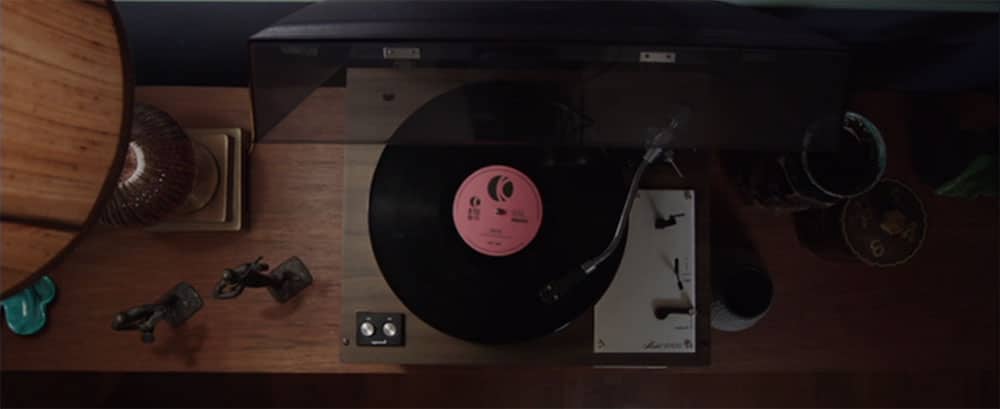
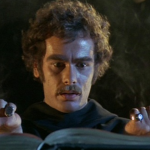
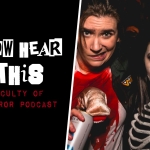
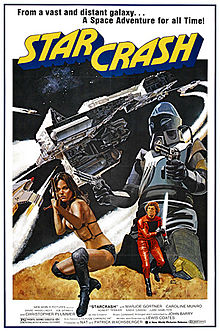
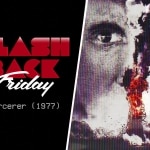







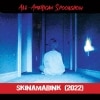
Follow Us!